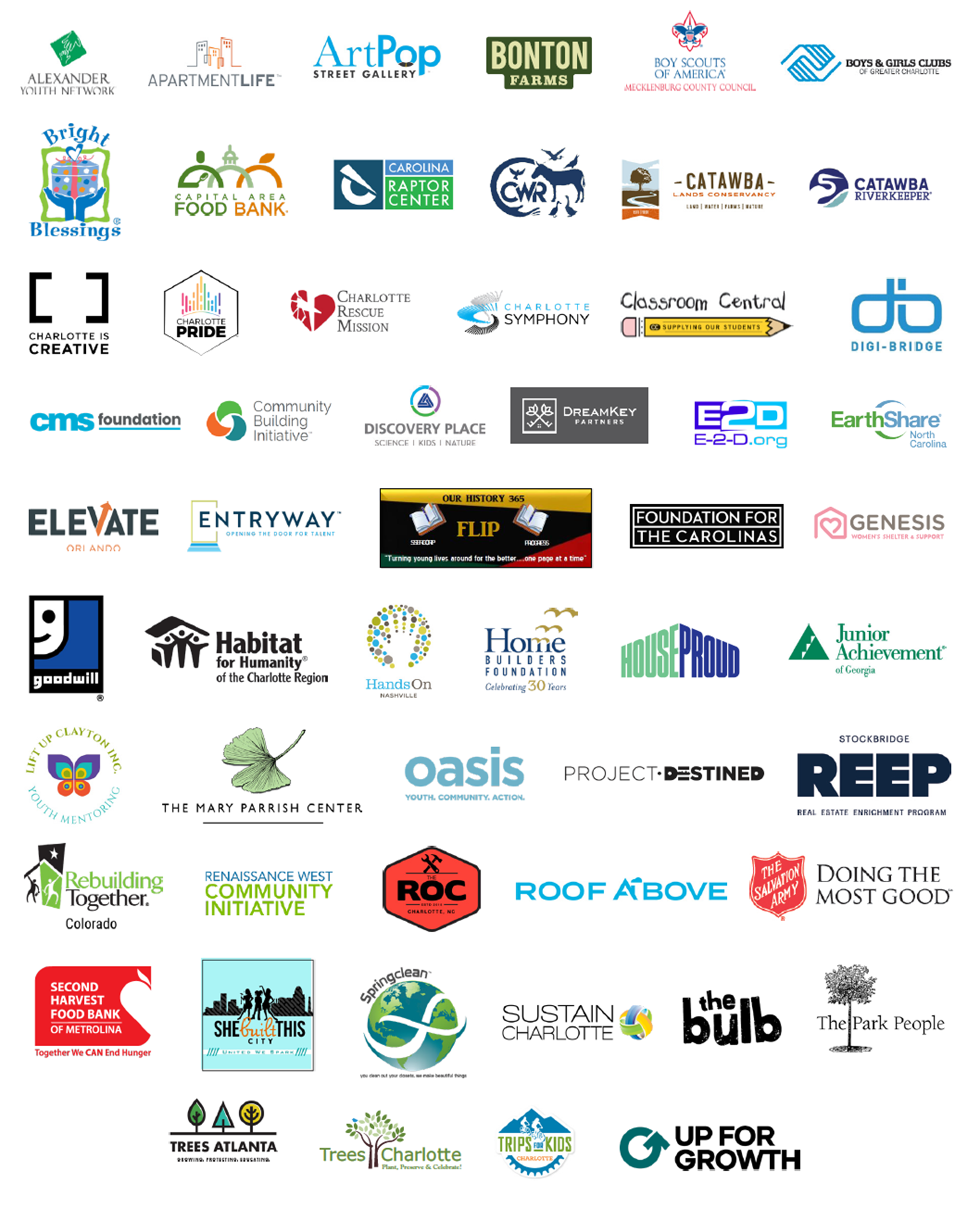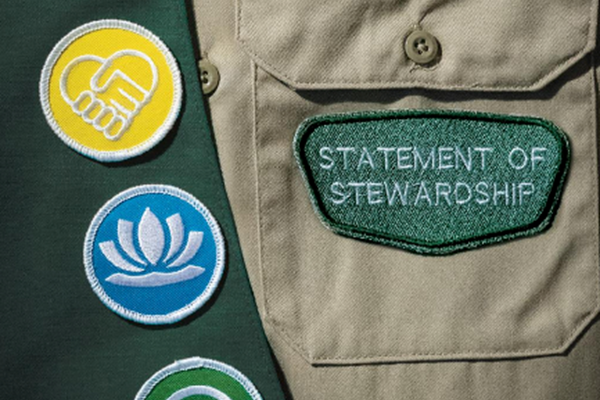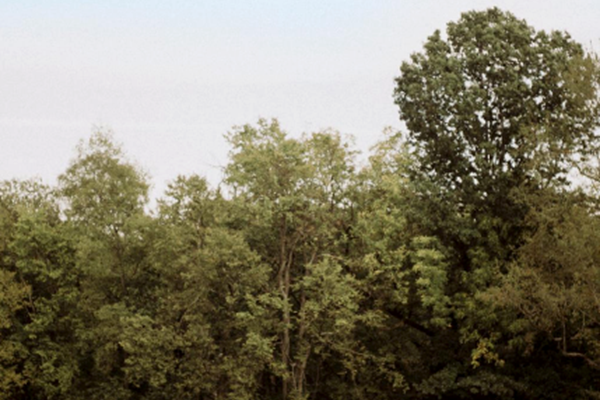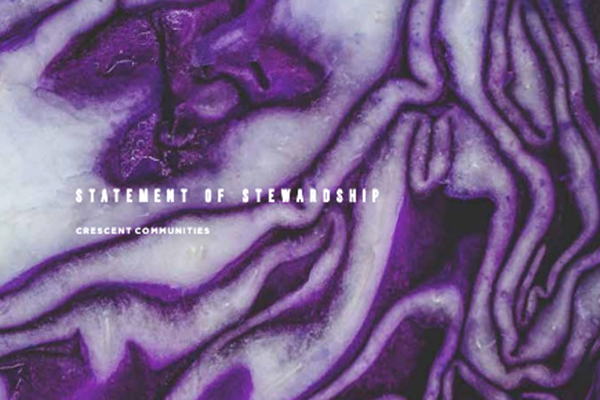STEWARDSHIP
Being good stewards is fundamental to the pursuit of our mission.
Stewardship at Crescent Communities
Being good stewards is fundamental to our mission to build community and better people's lives. We strive to make decisions that address current and future challenges and to improve continuously in order to have a positive impact on the planet, the people, and the places we build and call home. We hold ourselves accountable through regular evaluation of our practices and ongoing measurement. Our goal is to ensure that the communities under our stewardship flourish for years to come. We seek to create legacies, the value of which build with time.
SUPPORTING ACCESS TO LOCAL AND FRESH FOOD
The Bulb
In Charlotte’s Mecklenburg County, 14.9% of households are experiencing food insecurity. The Bulb provides fresh produce, as well as health & wellness education, to food more than 12 insecure neighborhoods across the Charlotte metro area. The majority of their produce comes from small, sustainable North Carolina farms that are working to meaningfully connect local produce to the community.
In 2023, a team from Crescent Communities volunteered to weed, plant, and harvest in the Bulb’s Urban Farm, which utilizes sustainable farming practices to grow nutritious, high-quality produce for local food-insecure communities at no cost. We see great potential in the way The Bulb is using locally grown food to increase food sovereignty and food justice in Charlotte and look forward to continuing to create impact in our community through this meaningful partnership.
PLANTING TREES AT AFFORDABLE HOUSING PROPERTIES
TreesCharlotte and Housing Impact Fund
Trees are the lifeblood of our communities, providing shade, oxygen, protection from wind and noise, food and shelter for wildlife, filtering stormwater, reducing energy consumption, increasing home values, and offsetting carbon emissions. Yet the tree canopy is disappearing, and disproportionately so in lower-income communities.
Housing affordability is a growing concern in all markets where Crescent Communities develops. In addition to supporting several impactful nonprofit organizations who are tackling these challenges, Crescent Communities directly contributes to housing initiatives that create affordable housing options through development and by preserving naturally occurring affordable housing (NOAH). In 2024, the colleagues of Crescent Communities brought TreesCharlotte to a naturally-occurring affordable housing community that is managed by Ascent Capital and joined forces to plant dozens of trees to provide the many environmental benefits to community residents.
BUILDING COMMUNITY
Habitat for Humanity
The Crescent Communities team gives time and energy to Habitat for Humanity in several of the markets where we have offices. In partnership with Habitat for Humanity, several Crescent colleagues participated in a Habitat New Construction Home Build project for a local Charlotte family in 2023. They hung drywall alongside the new homeowner, while learning her plans for making this house a home.
The challenges of affordable housing can only be addressed if approached from many angles. This is an important partnership to the Crescent Communities team, and we will continue to seek opportunities where we can best serve our communities in addressing the need for affordable housing.
LEED & NGBS Certifications
Building Green
The built environment offers a significant opportunity to make meaningful change when it comes to our overall environmental impact. By building more efficiently, we can effect positive change regarding energy consumption, water use, and waste reduction.
To identify areas for improvement, we must measure our actions. Since 2014, each of our multifamily communities have been certified (or are pursuing certification) under either the National Green Building Standard (NGBS) or Leadership in Energy and Environmental Design (LEED), and nearly all of our commercial communities are LEED certified.
Building Inclusive Communities at The River District
Affordable Housing
We believe that everyone has the right to safe and comfortable housing. Access to affordable housing is the key to reducing economic disparity, but creating affordable housing continues to be a challenge in many of the areas where we build due to a variety of factors, including the cost of land. To this end, in the fall of 2018, Crescent Communities announced the donation of 4.5 acres of land in The River District to the Foundation for the Carolinas for the construction of affordable housing. The gift, valued at $2 million, is the first of its kind as part of the Foundation led effort to raise funds from the private sector to address Charlotte’s affordable housing crisis. Charlotte-based developer, Laurel Street Partners, will create a 124-unit mixed-income housing community on this land.
Back-To-School Supply Drive
Supporting Education: Classroom Central
Crescent Communities supports back-to-school efforts nationally in the communities in which we serve. Annually in Charlotte, we host a school supply drive through Classroom Central to raise money and provide essential school supplies for Charlotte-Mecklenburg schools. We know access to education plays a huge part in the lives of school-aged children and we are pleased to be able to work with a great organization in Classroom Central to be part of this great work in such a direct way.
Through the overwhelming generosity of the team, last August, Crescent Communities donated over 3,700 school supply items for Classroom Central. Classroom Central’s mission is to equip students to learn effectively by collecting and distributing free school supplies to more than 156,000 eligible students and their teachers, across six school districts, in more than 200 high-needs schools in Charlotte.
SUPPORTING STEAM EDUCATION
Digi-Bridge
Colleagues visited Briarwood Elementary School and built STEAM (science, technology, engineering, arts, and math) curriculum kits with Digi-Bridge, a Charlotte nonprofit that sparks interest and persistence in STEAM learning, ensuring students in under-represented communities have access, opportunities and skills to succeed in a rapidly changing world. These kits help guide students in fun and engaging lessons highlighting topics such as Urban Planning, Community Engagement, Architecture, Construction, and Budgeting. They also led students through an exercise in building a community using art supplies.
Digi-Bridge has worked with more than 20,000 students through their out of school time programs. Students who work with Digi-Bridge report higher interest, confidence, and competence in STEAM disciplines.
EXPANDING THE CONSTRUCTION TRADES
She Built This City
Crescent Communities has built a strong partnership with She Built This City. This organization provides programming that builds pathways to careers in the skilled trades for youth, women, and marginalized communities. With women making up only 8% of the construction workforce, mostly in sales and office jobs, we find it important to spark that interest and encourage women to begin a career in the skilled trades.
Colleagues built much needed picnic tables and benches for Moore Place, a shelter providing wraparound services to unhoused adults. Crescent Communities has also hosted four groups of pre-apprenticeship program students for a tour of our NOVEL Mallard Creek community in Charlotte where they could ask questions and see a “real life” development in progress. We look forward to our continued partnership with this great organization.
SUPPORTING UPWARD MOBILITY
Freedom Communities
Several Crescent colleagues volunteered with Freedom Communities to remove invasive species in the landscape, organize offices and storage rooms, and fix a few things to make the area more welcoming and create more space for the dedicated people who work there. Freedom Communities works to support the Charlotte community through providing daycare, women’s support groups, computer classes, and more to encourage upward mobility.
Additionally in one of their largest food distribution days ever, Crescent colleagues helped Freedom Communities hand food and holiday supplies to local families. Through our partnership with Freedom Communities, and with the help of Loaves and Fishes, we passed out vegetables, meats, and pantry goods to 142 families.
EARTHSHARE NC EARTH DAY PARTNER
Carolina Waterfowl Rescue
Through our partnership with EarthShare NC, our colleagues were connected to Carolina Waterfowl Rescue. The organization is run by federally licensed wildlife rehabilitators who provide sanctuary, rescue, and rehabilitation for wildlife, farm, and exotic animals. The volunteers cut up fruits and vegetables to feed hundreds of animals, cleaned and organized inside spaces, built a chicken enclosure, and repaired outside spaces for the animals. The team’s hard work won EarthShare NC’s Best Overall award, acknowledging the use of our Crescent Communities Construction team’s specific skills to support the organization. The Crescent Communities Construction team planned a second volunteer day with Carolina Waterfowl Rescue to finish the work they started at the previous event. They installed a door, attached a wire fence around a chicken house, and repaired driveway gates to support this great organization using the skills they have as contractors.
INVASIVE SPECIES REMOVAL
Trees Atlanta
The Atlanta team, alongside our partners at Juneau Construction Company, volunteered in beautiful Connally Nature Park in June 2023. Our group helped Trees Atlanta hand-pull and cut invasive plants such as English Ivy, Chinese Privet, and Kudzu in a densely wooded area off-trail to make the area safer for the people who use the area for recreation and for the wildlife that call the park home.
PLANTING TREES IN VIRGINIA
James River Park
Colleagues supporting project efforts in the Richmond, Virginia area joined to remove invasive vines throughout the Pony Pasture of the James River Park, encouraging native plants and animals to thrive. We are actively building relationships across the country with organizations that work to ensure that all residents have access to the health and environmental benefits that trees provide.
Mile High Tree Champions Planting in Denver
The Park People
Our team participated in a tree planting with The Park People of Denver for our second planting event with the organization. We’re proud to provide volunteer opportunities for our employees and neighbors to ensure that all residents have access to the health and environmental benefits that trees provide. In 2023, our Denver team planted 25 native trees with the help of The Park People at beautiful Washington Park, helping to keep the park shady for years to come.
COMMUNITY PARTNERS










